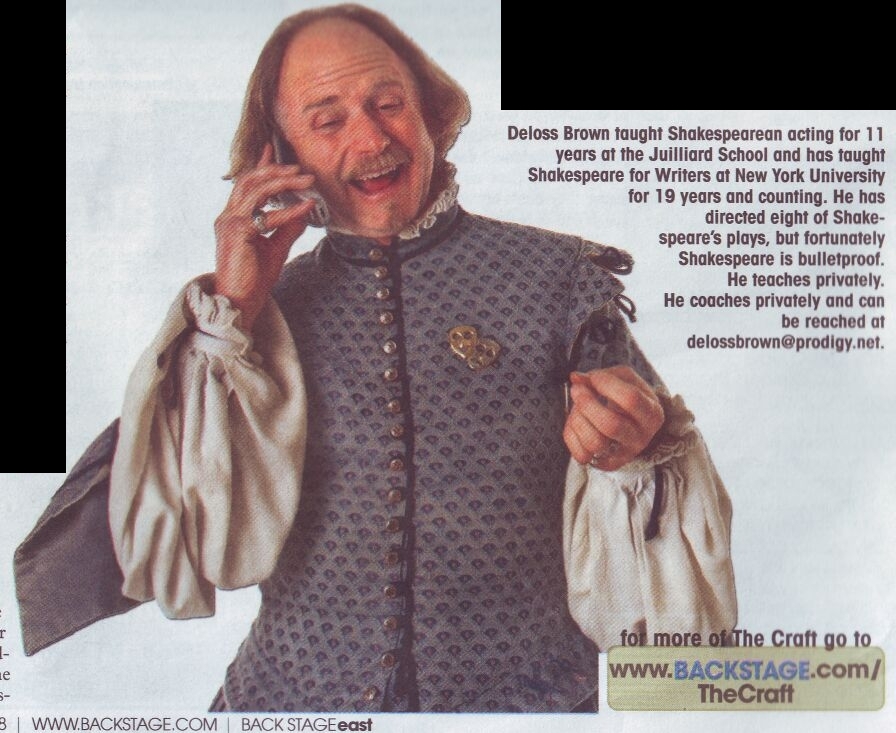When Shakespeare Rambles

But I ramble. The topic is lines that have too many syllables in them to be iambic pentameter. Regular iambic pentameter has ten syllables, an unstressed followed by a stressed, repeated five times. A good example is Orsino's first line in Twelfth Night:
If music be the food of love, play on. (TN I.1.1)With the stresses marked, it looks like this:
if MU-sic BE the FOOD of LOVE, play ON--and you don't have to exaggerate the stresses as shown above. If you merely say the line, clever Mr. Shakespeare has so arranged the words that the meter comes through.
So if that's the model, how is an actor to deal with these sprawling freaks in Romeo and Juliet?
Alive in triumph, and Mercutio slain?
Away to heaven respective lenity, (11 syllables)
And fire-eyed fury be my conduct now!
Now, Tybalt, take the 'villain' back again
That late thou gavest me; for Mercutio's soul (11 syllables)
Is but a little way above our heads,
Staying for thine to keep him company.
Either thou or I, or both, must go with him. (11 syllables) (Rom., III.1.120-7)
I' th' last night's storm I such a fellow saw, ("I' th' "means "In the" and shouldGloucester is on the edge of realizing that he made a mistake in driving his son Edgar away and then trying to have him caught and hanged. He can't think the thought. Line 35 is not only too long, it ceases to be verse and degenerates into prose. Gloucester speaks slowly because he's grappling ineffectually with a very unpleasant idea. We all like the poetry of the "flies/gods" lines (36-7). But their source is Gloucester's attempt to avoid any responsibility for his actions by blaming everything on the gods.
probably be pronounced that way)
Which made me think a man a worm. My son
Came then into my mind, and yet my mind
Was then scarce friends with him. I have heard more since. (11 syllables)
As flies to wanton boys are we to th' gods:
They kill us for their sport. (Lr., IV.1.32-7)
Back to Acting Shakespeare's Verse.